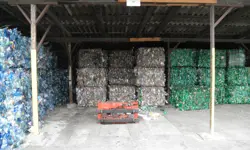
Net zero - aspiration or reality?
When the UK government legislated in 2019 for net zero carbon emissions by 2050 there was close to unanimous support. It is easy to sign up to goals that are both aspirational and sufficiently distant so that accountability for reaching them will lie with others. This is no different to the idea that irreversible resource depletion in the present will be a problem that future generations will have to solve because we cannot, or cannot be bothered, to solve it in the present. There are ethical and moral principles at stake here. Much of engineering, and also science, is stimulated by the need to do good things where the outcome of our work brings greater overall benefit than if it had not happened – in other words, greater utility.
This view of an ethical framework for action is challenged by the difficulty of assessing what will be good in future. Was the invention of the internal combustion engine good in retrospect when it has been one of the drivers of climate change? Are pesticides good inventions because they increase crop yield although, as we come to understand their diffuse actions in the environment, they can have negative impacts as well?
Consequently, even if we are clear about the positive results from achieving net zero greenhouse gas emissions, are all the things that we are doing now going to genuinely contribute to this objective, or do they just serve short-term interests? Are they actions that are cloaked in rhetoric about their contribution to the net zero objective while their real purpose is to underpin business as usual?
The Committee on Climate Change has set out actions that are needed to meet net zero. Although its analysis seems sound, the explanations are fuzzy. The true impact of the analysis has been lost in the committee’s simple message that it is possible to do what is required through some tweaks here and there to business as usual. I think this is profoundly wrong.
we need to make the transition in one human generation, or a shorter time than the lifecycle duration for major infrastructure
We need to go through an energy transition equivalent to the historical transitions from wood to coal, and then from coal to oil. The transition from oil to nuclear has notably failed. While we are not quite at a standing start when transitioning to non-renewable sources of energy, we need to make the transition in one human generation, or a shorter time than the lifecycle duration for major infrastructure.
I guess this is just about possible – the market can do amazing things when it is set appropriate goals – but it is impossible when the price of carbon is as low as $20 to $30 a tonne, as it is now. The market currently operates using agreed rules, which need to be reconstructed. Governments need to take a unified position both nationally and internationally. Unfortunately, there is no clear sign this is going to happen soon.
Governments need to take a unified position both nationally and internationally
If the supply side is challenging, the demand side is even more difficult. The transitions that need to happen here involve highly dispersed systems – electricity grids, domestic heating and power, transport and food production. Some of these are easier to transition quickly – for example in transport, personal vehicles could be switched swiftly – but the lifecycles for many other systems last many decades, and even centuries.
Food is one example where the challenges are greatest. On average, it currently takes roughly ten calories of fossil fuel to put a calorie of protein on a person’s plate. Food production probably needs to be five to ten times more energy efficient by 2050 than it is today.
Such a transition needs simultaneous supply- and demand-side transformation. The engineering challenges on the supply side will involve controlled system farming (so called ‘vertical farms’) and other kinds of technologies. For example, coastal desert regions where there is plentiful solar energy, fresh water from seawater desalination and cheap land are likely to provide opportunities for culturing food in ways that give the kind of efficiencies needed.
Changing the demand side will require the environmental costs of current food production to be reflected in the price of food. Whatever people actually say about their reasons for buying certain foods, they are most influenced by price and most people eat processed foods of some sort. Changing demand is not, therefore, as difficult as might be imagined. However, these changes will mean sacrificing parts of the traditional farming industry and its methods, including much of current meat and dairy production.
If, by 2050, we could make every aspect of our food production as good as the best-in-class today we will have solved the problem
If, by 2050, we could make every aspect of our food production as good as the best-in-class today we will have solved the problem. But this will require investment in the engineering needed to do this at scale, alongside development of the policies needed to shift demand.
Have we got the determination to make this and other similar efficiency transitions happen? COVID-19 should be a wake-up call. Although it is not linked to climate change per se, it is linked to the kind of lifestyles that have generated the problem of climate change. We will see some people calling for climate actions to be ditched in order to get back to business as usual as quickly as possible. This is precisely the wrong way to go. If the COVID-19 tragedy is going to have a lasting positive legacy it should be to help us understand our vulnerabilities. It is the opportunity to press reset by setting enlightened rules about how development and regrowth might happen.
***
This article has been adapted from "Net zero - aspiration or reality?", which originally appeared in the print edition of Ingenia 83 (June 2020).
Contributors

Professor Sir Ian Boyd FRSE originally graduated from the University of Aberdeen with a degree in Zoology and has a PhD from Cambridge University. He is a marine and polar scientist who was Chief Scientific Adviser to the UK Government on Food and the Environment. He is currently a professor at the University of St Andrews and the Chairman of the UK Research Integrity Office.
Keep up-to-date with Ingenia for free
SubscribeRelated content
Environment & sustainability

The extreme engineering behind life on an Antarctic station
Antarctica is one of the most challenging environments on the planet, but of enormous scientific importance to humanity. Technology and engineering is essential to enable the British Antarctic Survey's researchers to pursue their science effectively in this awe-inspiring landscape.

Recycling household waste
The percentage of waste recycled in the UK has risen rapidly over the past 20 years, thanks to breakthroughs in the way waste is processed. Find out about what happens to household waste and recent technological developments in the UK.

Upgrade existing buildings to reduce emissions
Much of the UK’s existing buildings predate modern energy standards. Patrick Bellew of Atelier Ten, a company that pioneered environmental innovations, suggests that a National Infrastructure Project is needed to tackle waste and inefficiency.

An appetite for oil
The Gobbler boat’s compact and lightweight dimensions coupled with complex oil-skimming technology provide a safer and more effective way of containing and cleaning up oil spills, both in harbour and at sea.
Other content from Ingenia
Quick read

- Environment & sustainability
- Opinion
A young engineer’s perspective on the good, the bad and the ugly of COP27

- Environment & sustainability
- Issue 95
How do we pay for net zero technologies?
Quick read

- Transport
- Mechanical
- How I got here
Electrifying trains and STEMAZING outreach

- Civil & structural
- Environment & sustainability
- Issue 95